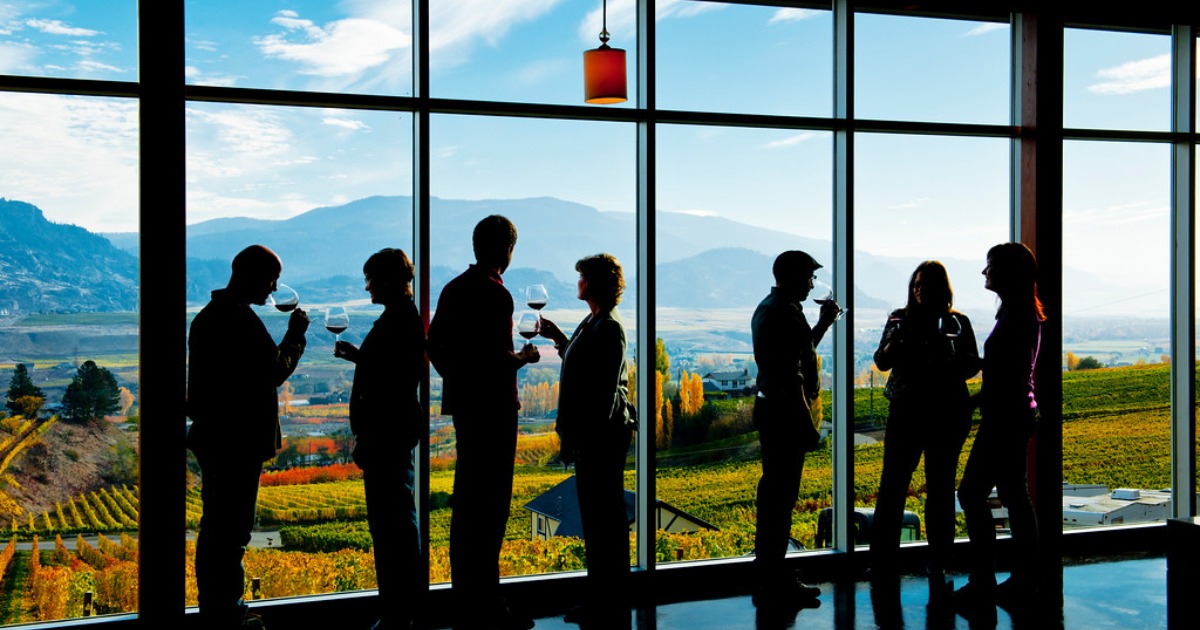“It may never be the way it used to be. You may never be able to just drive up to a winery and head to the tasting bar.”
Darryl Brooker is taking nothing for granted as he tries to imagine how wineries will fare through an Okanagan summer under COVID-19 restrictions. The president of Mission Hill Family Estate, Brooker (like everyone else in the region) has been working out how to keep the B.C. wine business vibrant and alive in these uncertain times.
The introduction of physical distancing and the closing down of restaurants and other businesses happened just at the moment the Interior’s wine season traditionally begins. Spring break is the unofficial opening, with Easter the first truly busy milestone weekend.
“Wineries were just gearing up,” notes Jennifer Busmann, executive director of Oliver Osoyoos Wine Country. “Tasting rooms and restaurants were in the initial phase of onboarding staff.”
Overnight, everything changed.
“It’s hard to be patient,” Busmann says. “Everybody wants answers. But one of the first things we decided was to not make any irrational decisions.”
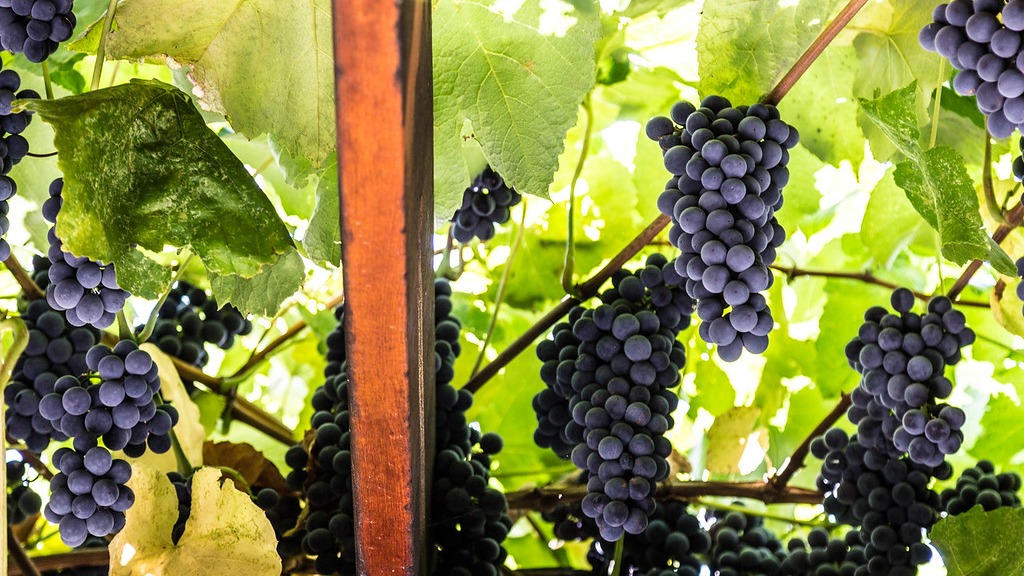
Photo by Leila Kwok/Stoneboat Vineyards.
They did quickly postpone two of the southern Okanagan’s big May events—the Half Corked Marathon and Pig Out—to the fall, but opted not to cancel them completely until the situation became clearer. “We need to understand the parameters we will have to adhere to, and then work out how to put the safety and health measures in place,” Busmann says.
For now, the organization has pivoted to help its members engage with oenophiles online: many of the Okanagan’s smaller wineries base their entire business model on orders from restaurants and on-site visitor sales—a model effectively made redundant in the COVID-19 world
“We want to provide all the tips and tools we can to help our members fully explore their options,” Busmann explains. “They made it through April, and we can see the way through May, but what does June look like? What does July and August look like?”
Getting their brand and their bottles in front of customers is vital, says Neelam Dhaliwal, operations manager at Kismet Estate Winery in Oliver. March and April—when the “wine fanatics start dropping in”—is usually an exciting time at the winery, she says.
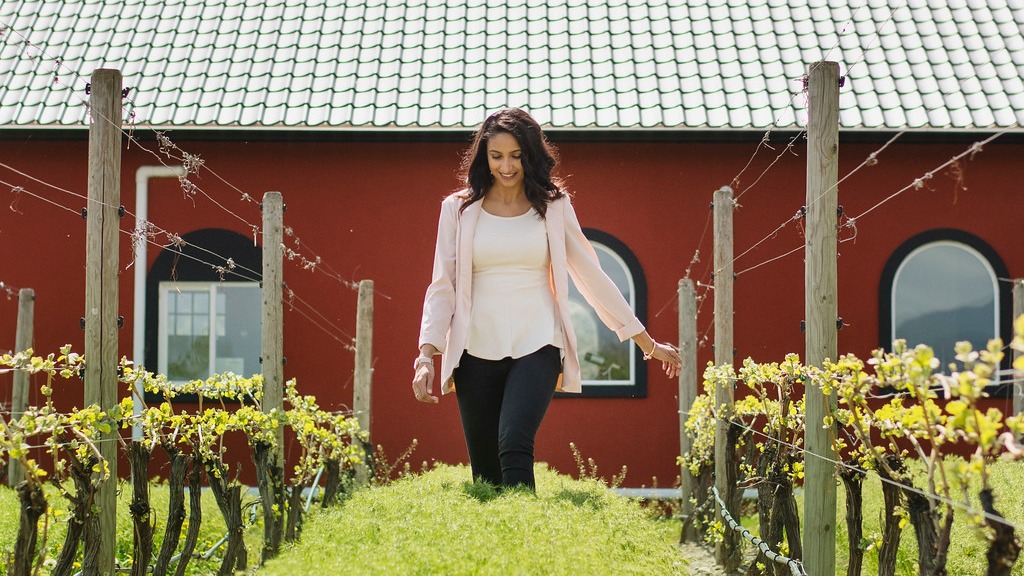
Photo by Jessica Harcombe Fleming/Kismet Estate Winery.
“As a small, family-owned winery, that contact with our customers is what drives us and makes all the hard work worthwhile. This is a passionate industry and the connection between us and our clients is everything to us.”
Like many of the Okanagan wineries, Kismet is putting its efforts into online engagement, including its new weekly Sunday Live, a virtual tasting hosted on its social media channels. Wines to be featured are posted in advance and can be ordered to arrive in time to drink along.
“Just being able to talk about wine and answer questions reminds us how important our community is,” Dhaliwal says.
For their wine club members, they are also hosting private virtual tastings by video calls in order to bring value to their loyal base. “You sign up online, pick the wines you want to be guided through, and order them,” she explains. “Then, once your wines have arrived, you select a date for the tasting session. We’re happy to do it for just the members or, if they wish, they can share the video link with friends and family, and they are welcome to join.”
Clients can pick a varietal or a topic—food pairings are popular, Dhaliwal says, noting they can cover everything from samosas to chicken tandoori to charcuterie and cheese.
As in most wine tastings, eventually the pleasure of drinking the wines takes precedence over the educational aspect and, Dhaliwal says, they make sure to encourage the social aspect, especially in these distanced times: “We leave the chat at a certain point and let the group continue to hang out and enjoy themselves.”
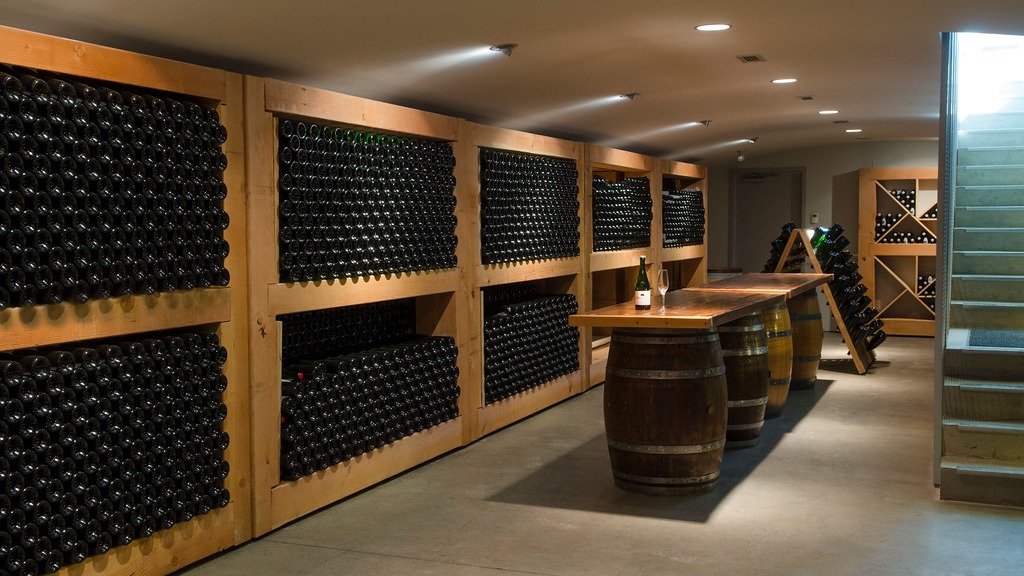
Image courtesy of Road 13 Vineyards.
It may be a much larger operation, but at Iconic Wineries of British Columbia, that need to create and maintain connections with new and existing customers is also top of mind. The group—which includes Mission Hill, Road 13, CedarCreek, CheckMate, and Martin’s Lane—has launched a variety of virtual tasting experiences across its brands, which, Darryl Brooker says, are proving quite popular.
“But to be honest, what’s really taken us by surprise, and has been doing the best across all our properties, has just been curated offers for people—putting together wines to make things easy for people.”
The group has also removed traditional barriers to ordering online, scrapping shipping costs and removing any minimum order or minimum spend. “It doesn’t happen often, but if someone wants to order a single bottle, they can,” he adds. “Our average order size is well over six bottles, but just by removing those barriers, our shipping and online orders have gone through the roof.”
Also significant, he notes, is the nature of those orders: before the COVID crisis, 90 to 95 per cent of online orders would be from their wine club members. Brooker says that’s now closer to 50 per cent, with first-time buyers and new repeat customers making up the other half, and the value of their orders increasing as they come back for more.
The uptick in online sales can be seen across the group, he says. “CedarCreek has nearly tripled, Road 13 has nearly doubled…”
While this is all encouraging news, Brooker says they are still working hard to plan for the summer—whatever that might look like. While numbers will likely be much reduced from the thousands of visitors that usually flock into the region and its wineries in July and August, he says they are expecting some B.C. and Alberta residents to still drive in for a vacation.
How they will host visitors will, he says, depend on provincial health and safety guidelines, but they are planning for much smaller experiences.
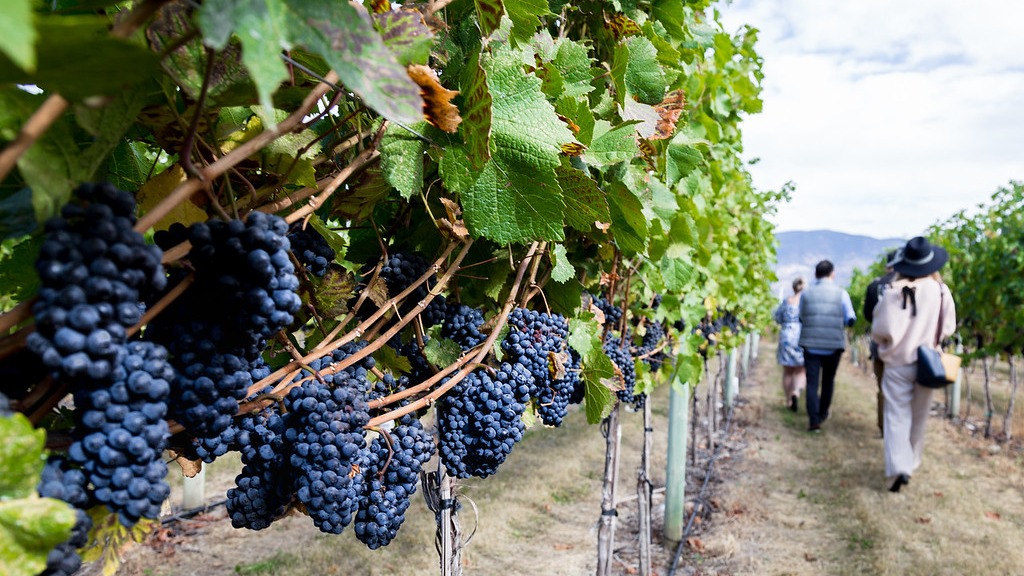
Photo by Leila Kwok/Stoneboat Vineyards.
“We are looking at hosting private groups and possibly by reservation only,” he explains. “I think there’s going to be social trust issues—people won’t want to be at a tasting bar next to 15 strangers—so we are looking at ways to host private groups.”
Tastings will likely be limited to eight people maximum, he says, but they would be happy to host just two people as well. “It’ll be smaller and more intimate—we still want people to be able to visit our property safely.”
Meanwhile, he says, the group is very involved in what is happening to other wineries across the region.
“I’ve spoken to a number of small wineries that can’t even afford to bottle their wine,” he says. “We’re trying to offer advice and support, and help out where we can.”
That help extends beyond wineries: Brooker says they were alarmed to hear that the local farmers who supply the group’s restaurants with produce were considering not planting crops this year, anticipating no demand for the food they would grow.
“We went to all of our farmers and asked them to plant, guaranteeing that we will buy exactly the same if not more than we bought last year,” he says. “We’ll just hand it out to staff until the restaurants can reopen.”
One thing both Dhaliwal and Brooker would like to see is some movement from the provincial governments on the laws around shipping wine across the country. It’s time, they argue, that the wine industry is seen as national, and that wineries should be allowed to ship their products freely.
“One thing we have seen in all of this,” Brooker says, laughing, “is that wine consumption has not gone down. So, if people can’t come to us to taste our wines, at least let us take the wines to them.”
Read more Food and Drink stories here.

